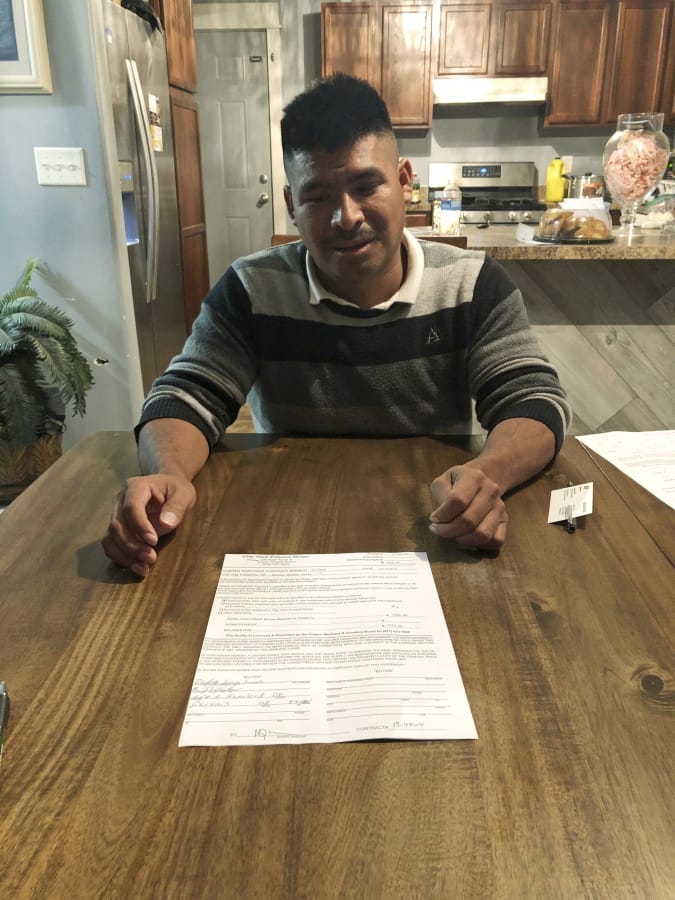GERVAIS, Ore. — It was nighttime when Pedro Lucas came home, clutching receipts showing he had paid a funeral home to have the bodies of three immigrant laborers returned to Guatemala from Oregon.
The three, including two of Lucas’ cousins, were killed when a pickup truck slammed into a van carrying them and 10 other Guatemalans home from work at a Christmas tree farm. Lucas’ father, who arrived in America just seven months ago and sent part of his earnings to his wife in the village of Chacaj, was also in the van and remains in a coma, his back broken.
“It’s unknown if he’ll walk again,” Lucas said in Spanish.
The Nov. 29 crash shined a light on Oregon’s immigrant farmworkers, the driving force behind the state’s $121 million Christmas tree industry, the nation’s largest.
“People don’t realize that the majority of this industry is immigrant labor,” said Reyna Lopez, executive director of a farmworker union called PCUN, an acronym in Spanish for Pine Workers and Farmers United of the Northwest.



